The child's first right (1932)
장르 : 드라마
상영시간 : 1시간 18분
연출 : Fritz Wendhausen
각본 : Thea von Harbou
시놉시스
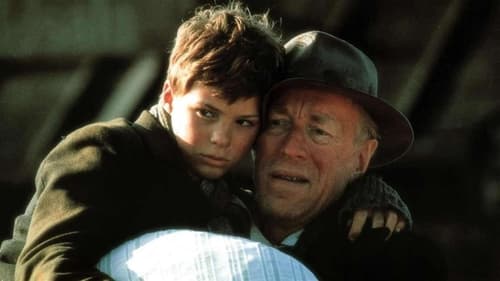
19세기 말 가난과 비참한 생활을 떨치고자 10세 소년 펠레와 아버지 라튼은 스웨덴에서 덴마크로 온다. 그러나 덴마크에서도 그들의 가난은 계속 되고, 아버지는 간신히 콘스트립 목장에 취직한다. 하루하루 생활에서 새로운 모험과 체험을 느끼던 펠레는 조금씩 성장해가며, 보다 더 넓은 세상을 꿈꾼다. 그러나 아버지는 나은 세상에 대한 희망을 상실한 상태. 결국 펠레는 아버지 켵을 떠나기로 결심한다. 넓은 세계를 배우기 위해 먼 길을 떠나는 어린 정복자 펠레.
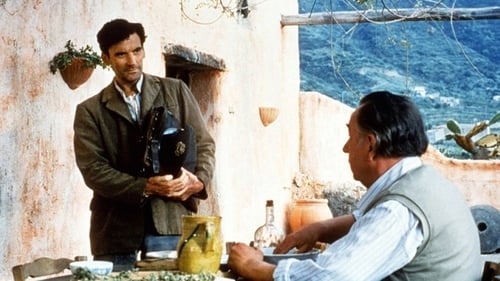
작은 섬 칼라 디소토에 오게 된 시인 네루다, 어부의 아들 마리오는 그의 도착으로 인해 불어난 우편물량을 소화하고자 우체부로 고용된다. 로맨틱 시인 네루다와 가까이 지내면서 섬마을 여자들의 관심을 끌고자 했던 마리오는 그와 우정을 쌓아가면서 시와 은유의 세계를 만나게 되고, 아름답지만 다가갈 수 없을 것만 같았던 베아트리체 루쏘와 사랑을 이루게 된다. 그리고 그의 내면에 자라고 있던 뜨거운 이성과 감성을 발견하게 되는데…
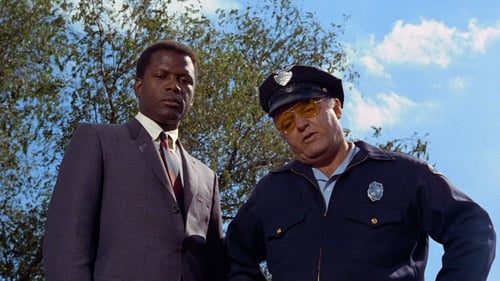
60년대에도 여전히 흑인들이 목화 농장에서 노예 취급을 받았던 미국 남부 스파르타에서 한 북부 사업가가 피살된다. 조사에 착수한 보안관이 흑인이라는 이유로 체포한 사람은 바로 가족들을 만나러 온 형사 버질 팁스(시드니 포이티어)다. 무능하고 한심한 수사를 보다 못해 직접 나선 팁스는 사사건건 시비를 거는 백인 보안관 길레스피(로드 스타이거)와 함께 수사를 진행한다. 길레스피와 버질은 함께 사건을 겪으며 서로를 알아가고 차츰 인간적으로 가까워진다.
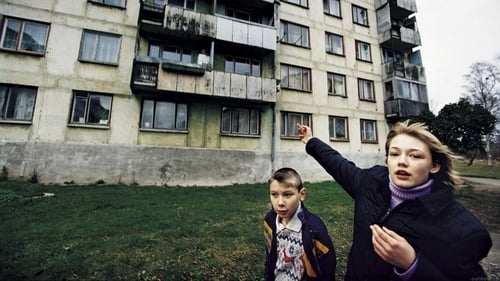
지금은 황폐하지만 한때 막강했던 소비에트 제국의 시골. 16살의 릴리아는 새 남자를 만나 미국으로 간 어머니를 기다리지만 곧 자신이 버려졌음을 깨닫게 된다. 그녀는 돈이 하나도 없는 관계로 전기와 난방이 들어오지 않는 낡은 건물로 이사하고 유일한 친구인 11살짜리 소년 볼로디아와 남매처럼 함께 지내며 더 편한 삶을 꿈꾸곤 한다. 한편, 릴리아는 안드레이와 사랑에 빠지게 되고, 안드레이는 자신과 함께 스웨덴으로 가 새로운 삶을 시작하자고 한다. 볼로디아는 그런 그들을 질투하고 미심쩍어 하지만 릴리아는 스웨덴으로 떠나는데, 그녀는 결코 거기서 기다리고 있는 불행을 깨닫지 못한다.

18살의 로제타는 수습기간이 끝나자 공장에서 쫓겨난다. 해고 통보를 받고 반항도 해보지만 그렇다고 딱히 방법이 있는 것은 아니다. 알코올 중독의 어머니와 함께 이동식 트레일러에서 생활하는 로제타에게 가난은 이제 일상이 됐다. 헌옷을 주워서 어머니가 수선하면 그것을 내다팔고 음식이 풍족하지 않아 강에서 숭어를 잡을 때도 있다. 그래도 여전히 살기는 어렵다. 공장에서 일한 기간이 짧아 실업급여는 나오지 않고 다른 일거리를 찾는 일마저 불가능해 보인다. 그러다 로제타는 근처 와플 가게에서 일하는 리케와 친구가 된다. 이후 사장의 도움으로 와플을 반죽하는 일을 맡지만, 3일 뒤 사장의 아들이 퇴학당하면서 내쫓기고 만다. 그 사이에 로제타는 원인을 알 수 없는 복통에 시달린다. 그녀가 원하는 것은 단지 ‘평범한 삶’일 뿐인데, 다른 사람들 속에서 다른 사람들처럼 사는 일이 그녀에겐 너무 어렵다.
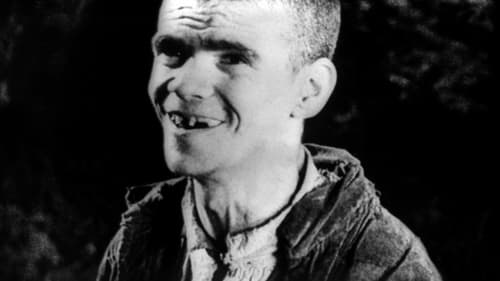
An exploration —manipulated and staged— of life in Las Hurdes, in the province of Cáceres, in Extremadura, Spain, as it was in 1932. Insalubrity, misery and lack of opportunities provoke the emigration of young people and the solitude of those who remain in the desolation of one of the poorest and least developed Spanish regions at that time. (Silent short, voiced in 1937 and 1996.)

Three teenagers with troubled families are unable to adjust at home and in high-school. Tempted with an easy, carefree life they soon pass from misdemeanors into serious crime - and will suffer for it. Sometimes, repentance comes too late.

In the mountains of Northern Thailand lies a boarding school. The students come from different tribes in the area and live together with their Thai teacher, grow their own crops and cook their own meals while continuing their education. The biggest question on their mind, having spent all their lives in the mountainside, is where the rivers running down the hills end. If they pass the final exams their reward is a trip to the end of the river, to the ocean itself. The children are poor, some orphans, and most of them only speak their tribe's language, but all try their best to pass the exams to be able to take the long-awaited trip. This trip is not only a journey from the children's villages to the ocean but also a journey that symbolizes the change from childhood to adulthood.

A gynecologist attempts to rid the world of sexual problems by separating sex on the one hand and reproduction, which he feels should be left to artificial wombs.

DREAMING NICARAGUA is a film about HOPE. It's about love for the dignity and courage of the human spirit that, even immersed in uttermost tragic conditions, fights for a better life, and in this case, with a friendly SMILE. DREAMING is a sensitive and lyrical portrayal of four children living in extreme poverty in Nicaragua. The film takes us beyond their hardships and gives voice to the youngsters, who are surprisingly funny, hopeful, and optimistic. A traveling art teacher provides a safe arena for our four unlikely protagonists to express their innermost thoughts. When painting, the kids momentarily escape the stresses of their reality into a world of dreams and ideas, a stark contrast to their lives outside: a vicious cycle of hunger, child labor, and violence. Despite the extreme circumstances, the children and their families face their lives with an inspiring unity, strength and humor.

During the last half-century, Cambodia has witnessed genocide, decades of war and the collapse of social order. Now, documentary filmmaker Rithy Panh looks at an irreparable tragedy that is less visible, yet no less pervasive: the spiritual death that results when young women are forced into prostitution. Angry and impassioned, PAPER CANNOT WRAP UP EMBERS presents the searing stories of poor Asian women whose lives were violated and their destinies destroyed when their bodies were turned into items of sexual commerce.

The poor may always have been with us, but attitudes towards them have changed. Beginning in the Neolithic Age, Ben Lewis's film takes us through the changing world of poverty. You go to sleep, you dream, you become poor through the ages. And when you awake, what can you say about poverty now? There are still very poor people, to be sure, but the new poverty has more to do with inequality...

The movie consists of three episodes that explore the lives of poor and desperate in Iran. In episode one, a very poor couple with many crippled children abandon their newly born baby in hopes that it will have a better future. In the second episode, a mentally impaired and isolated young man tries to take care of his senile mother who is almost dead. In the third episode, a cowardly and desperate peddler tries to escape from his boss.
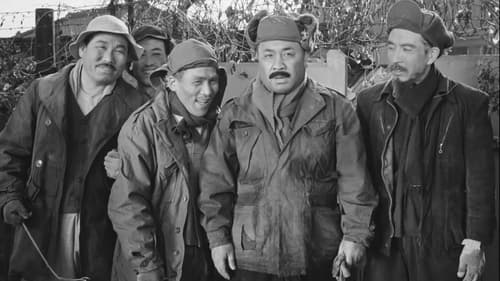
짐수레를 끄는 홀아비 마부인 춘삼은 고등고시를 공부하는 장남 수업과, 언어 장애 탓에 못된 남편에게 맞고 쫓겨 오기 일쑤인 맏딸 옥례, 가난한 집안 형편에 불만을 품고 신분 상승을 꿈꾸는 작은딸 옥희, 도둑질을 일삼는 막내 대업 등 네 자녀와 함께 살고 있다. 마주 집의 식모살이를 하고 있는 수원댁은 가난한 마부인 춘삼을 물심양면으로 도와주고 둘 사이에는 애틋한 감정이 오간다. 장남은 세 번이나 고등고시에 떨어지고, 큰딸은 남편의 학대에 못 이겨 한강에 투신해 자살하며, 작은딸도 부잣집 아들에게 농락당하는 등 온 가족이 시련을 겪는 가운데, 설상가상으로 춘삼은 사장의 자동차에 말이 놀라 다리까지 다친다. 게다가 마주는 말을 팔겠다며 마부 일을 그만두게 한다. 수원댁은 식모 일을 하며 모아둔 돈으로 그 말을 몰래 사서 춘삼에게 돌려준다. 마침내 장남 수업이 고시에 합격하던 날, 모두 모인 가족들은 수원댁을 어머니로 모신다. 새로운 희망에 부푼 춘삼의 가족들은 눈이 내리는 중앙청 거리를 함께 걷는다.
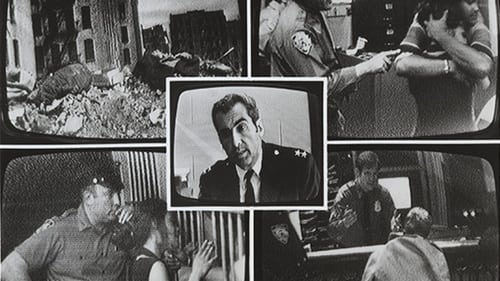
The Police Tapes is a 1977 documentary about a New York City police precinct in the South Bronx. The original ran ninety minutes and was produced for public television; a one-hour version later aired on ABC. Filmmakers Alan and Susan Raymond spent three months in 1976 riding along with patrol officers in the 44th Precinct of the South Bronx, which had the highest crime rate in New York City at that time. They produced about 40 hours of videotape that they edited into a 90-minute documentary.

Drama based on a play by Friedrich Wolf. Hete is pregnant, hoping to have soon a family with her fiancé Paul. When the factory, where she and Paul work, sacks all striking workers, she tries to find a legal way for abortion. But there is only the illegal option - the eponymous cyanide.

Gardoni, a down-on-his-luck vaudeville performer, is taken in by a fellow performer, a clown who has a bicycle riding act. Gardoni shows his appreciation by stealing the clown's act and his girlfriend, whom he marries.

Using an embedded Iraqi camera crew, AFI has delivered an unprecedented look at life inside post-war Iraq, all from the unique perspective of a precocious twelve-year-old boy. Doe-eyed and adorable Kheer Allah lives with his mother, father, two brothers and sister. Their "home" has no furniture and no modern appliances, except for an old television and radio sitting precariously atop a stack of used tires. There's no meat on this family's table. Home-baked pita bread is the staple in this beyond-poor household. School is out of the question too. Young Kheer Allah must work every day to help his family survive. This daily struggle forms the heart of this remarkable film. Through the wind-swept and war-ravaged streets of his neighborhood, Kheer Allah parlays his abundant charm into a variety of odd jobs that bring little money, but much satisfaction to his ever-smiling face.

The film tells the story of a young man who dreams of securing high jobs by completing his doctorate, but is forced to spend his days in a pig farm.

In the drought areas of Northeastern of Brazil, groups of migrants move trying to find better place to live, at least with water. Some of them go to Recife, to get a vessel to Santos expecting to have a better life in the Southern. In the poor area of Recife, an old washerwoman launders clothes to survive and support her family. Her husband Zé Luis, a former sailor, is crazy due to a hit of the boom of a mast on his head. Her older son Raimundo works in a grocery and selling mangoes on the street, trying to save money to move to the Southeastern with his girl-friend Aurora. Her daughter wants to be a prostitute to have a better quality of life. Her younger son is seriously sick.



















